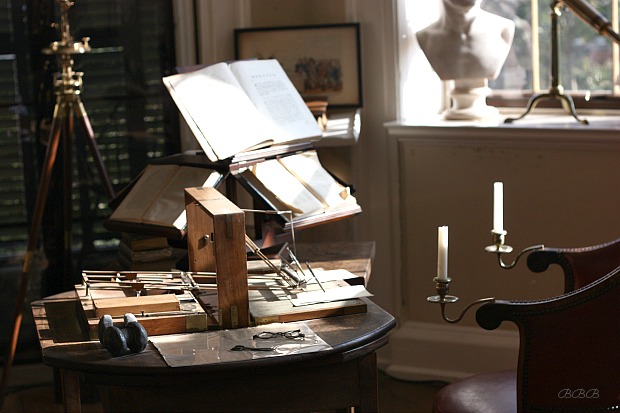From Peter S. Onuf and Annette Gordon-Reed's review of Jefferson's Spaces ...
Retreating behind his “wall of separation,” Jefferson refreshed his mind and spirit through reading, writing, and reflection. The space he reserved for himself was critical to the personal privacy he cherished after the death of his wife, Martha: this is where the independent, autonomous, self-governing individual cultivated his faculties and defined himself against and apart from the world. Yet, paradoxically, if contemporaries could not penetrate this space and know Jefferson intimately, modern students enjoy privileged access to the books he read and the vast correspondence that connected him to the “republic of letters.” This is where he fabricated the cut-and-paste “Jefferson Bible” and fashioned his idiosyncratic synthesis of Christian ethics and Scottish moral philosophy. It was as if the freedom of conscience that was foundational to republican government could be defined as a kind of inviolably sacred space, where the weary and beleaguered statesman could find a sanctuary.Privacy was not an end in itself for Jefferson, but rather the threshold of the enlightened sociability routinely performed in Monticello’s public spaces. Jefferson crossed that threshold, returning to his company, according to the dictates of the clock: breakfast at 10 a.m., dinner at 3 or 4 p.m., walking in the gardens and grounds culminating in convivial moments in the parlor at the end of the day. This was the Monticello Jefferson imagined when he was away: “I now see our fireside formed into a groupe, no one member of which has a fibre in their composition which can ever produce any jarring or jealousies among us.”

No comments:
Post a Comment